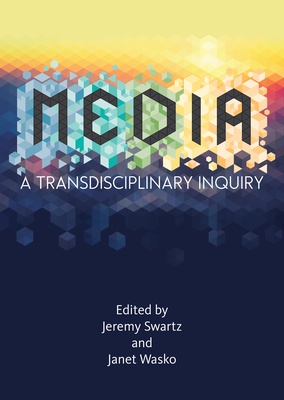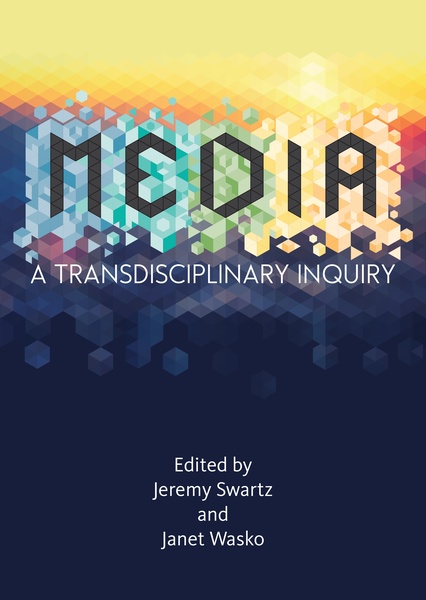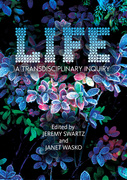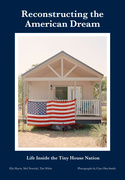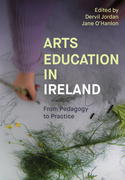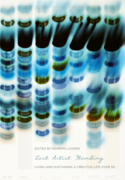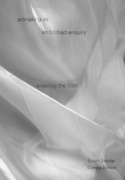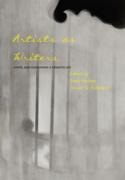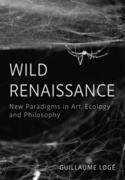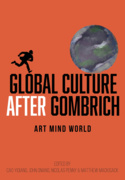MEDIA (Book)
A Transdisciplinary Inquiry
The first book in the Media-Life-Universe trilogy of transdisciplinary explorations from internationally known scholars and practitioners, this collection addresses the emerging roles of media and is an indispensable text for classroom use by scholars and students exploring contemporary media, communication and cultural studies. 37 b/w illus.
This is the first volume in the MEDIA • LIFE • UNIVERSE Trilogy.
Edition
The first in the Media-Life-Universe trilogy, this volume explores a transdisciplinary notion of media and technology, exploring media as technology, with special attention to its material, historical and ecological ramifications. The authors reconceptualize media from environmental, ecological and systems approaches, drawing not only on media and communication studies, but also philosophy, sociology, political science, biology, art, computer science, information studies and other disciplines.
Featuring a group of internationally known scholars, this collection explores evolving definitions of media and how media technologies are transforming theory and practice. As the current media includes a wider and wider range of concepts, products, services and institutions, the definition of media continues to be in a state of flux. What are media today? How is media studies evolving? How have technologies transformed communication and media theory, and informed praxis? What are some of the futures of media?
The collection challenges traditional notions of media, as well as concepts such as freedom of expression, audience empowerment and participatory media, and explores emergent media including transmedia, virtual reality, online games, metatechnology, remediation and makerspaces.
This is the first volume in the MEDIA • LIFE • UNIVERSE Trilogy. LIFE: A Transdisciplinary Inquiry 9781789382655 follows and builds upon this 2021 collection.
Preface to a Trilogy
Introduction
Genealogy
- ‘When Multimedia Meant Democracy’, Fred Turner
- ‘Four Reporting Cultures: Designing Humans In and Out of the Future of Journalism’, John Markoff
- ‘Dark Materials: Media, Machines, Markets’, Graham Murdock
Meanings of Media
- ‘A Community of Media: There Is a There There’, Sean Cubitt
- ‘Media as Cultural Techniques: From Inscribed Surfaces to Digitalized Interfaces’, Sybille Kramer
- ‘Understanding “Medium” in the Context of the Media Ecology Tradition’, Lance Strate
Organs and Organization
- ‘Between Media Studies and Organizational Communication: Organizing as the Creation of Organs’, François Cooren and Frédérik Matte
- ‘Paradigms for Creative Industry Research’, Angela McRobbie
- ‘The Politics of Mediation: Colonization to Co-Generative Democracy’, Stanley Deetz
Engagement and Extensions
- ‘Phantasmal Selves: Computational Approaches to Understanding Virtual Identities’, D. Fox Harrell
- ‘Calm Technology/Media and the Limit of Attention’, Amber Case
- ‘The Next Internet’, Vincent Mosco
Biomediations
- ‘Biological Dimensions of Media Ecology and Its Relationship to Biosemiotics’, Robert K. Logan
- ‘Biomediations: From “Life in Media” to “Living Media”’, Joanna Zylinska
- ‘Lynn Hershman Leeson: The Infinity Engine’, Ingeborg Reichle
Repair and Metamedia
- ‘No Issues Without Media: The Changing Politics of Public Controversy in Digital Societies’, Noortje Marres
- ‘The Poetics and Political Economy of Repair’, Steven J. Jackson and Lara Houston
- ‘Metamedia’, Jeremy Swartz
Appendix: Exhibition • Experience • Music
Notes on Contributors
Index
'The creative imagination of this book is astonishing. The brilliance of transdisciplinarity in these intellectually innovative chapters represents a historic turning point in media theory and research. Instead of timid steps, we need to urgently reconceptualize mediation, systems, networks, platforms, criticism, and materiality. This collection is an educational earthquake.'
'Bringing together the natural and exact sciences, humanities and arts, this volume puts forward unexpected conceptual conversations, puzzling inquiries, and dynamic lines of action. Its key motivation is to challenge scholars, students, and the public based on vision, solid knowledge and imagination. This book could not be more timely!'
'With a stellar cast of contributors, this insightful volume urges us to reimagine how media can be understood and reconceptualized as more than merely technological artifacts in isolation. The time is right for scholarship and praxis to move beyond binaries and reductions toward magnifying complexity, thus strengthening our critiques.'
'Critical, multifaceted and eye-opening, this kaleidoscopic volume illuminates the past, present and future of communication and media studies. Democratize media or face increasing existential crises — the struggle goes on. This book will be a definitive meeting place for concerned scholars, citizens and activists alike.'
'This volume contributes exceptional scholarly insights and a significant force urging us to think and act critically, moving beyond narrow conceptualizations. It brings opportunities to build new conversations and encourage cross-cultural inquiries. A must-read piece of contemporary scholarly work.'
'Spanning historical perspectives, contemporary concerns, and practical agendas, this volume provides an essential starting point for a transdisciplinary conversation on media and communication as both objects and modes of inquiry.'
'If the editors set out to shake up tried and true approaches to understanding media, they have succeeded. This assemblage is an open-ended universe of starting and ending points, patterns, and paradigms. Underlying it all is a quest for advancing towards not more entertaining consumer goods, but more full-throated democratic and just communities.'
'What are media and their significance in the contemporary complexity of culture, social life, environment, and power today? This provocative book offers cross-cutting and panoramic views on a topic essential to us all. An elegant, compelling, and must-read first installment of an emerging trilogy.'

